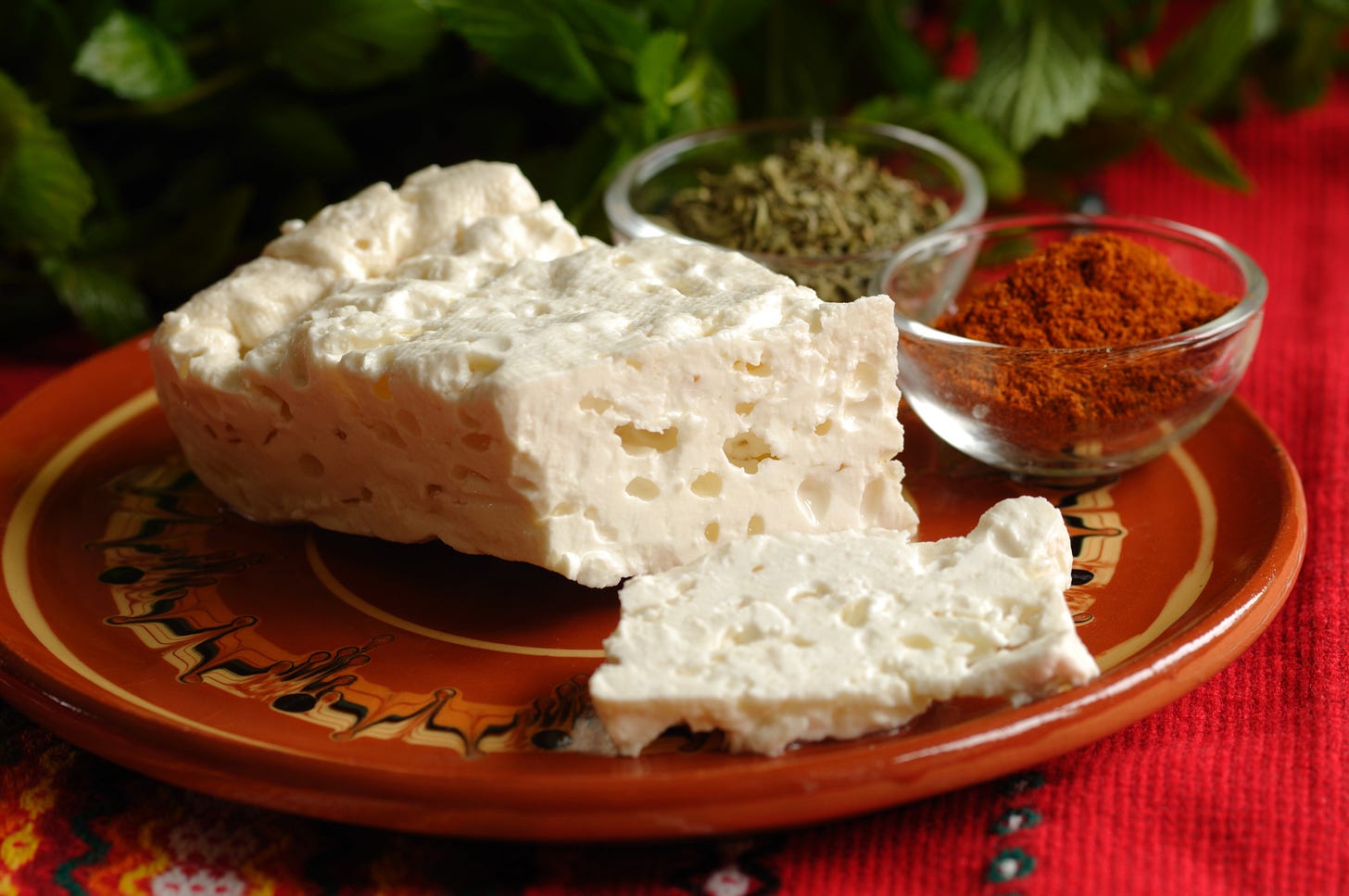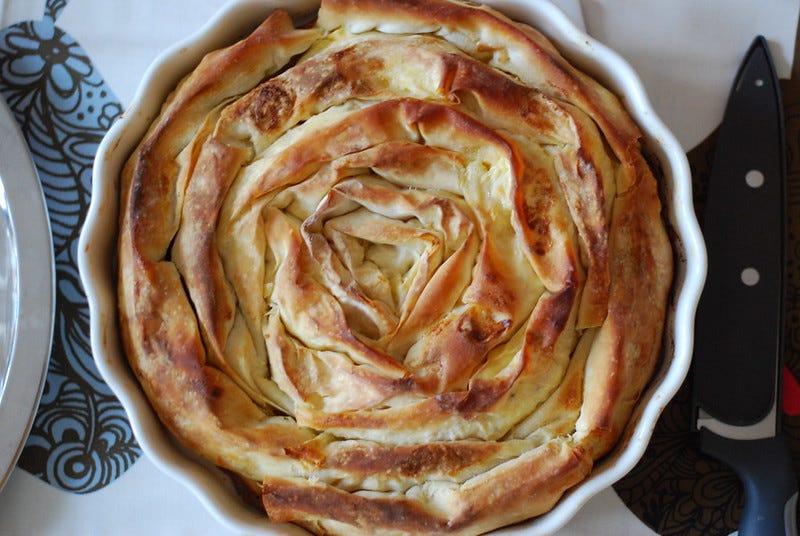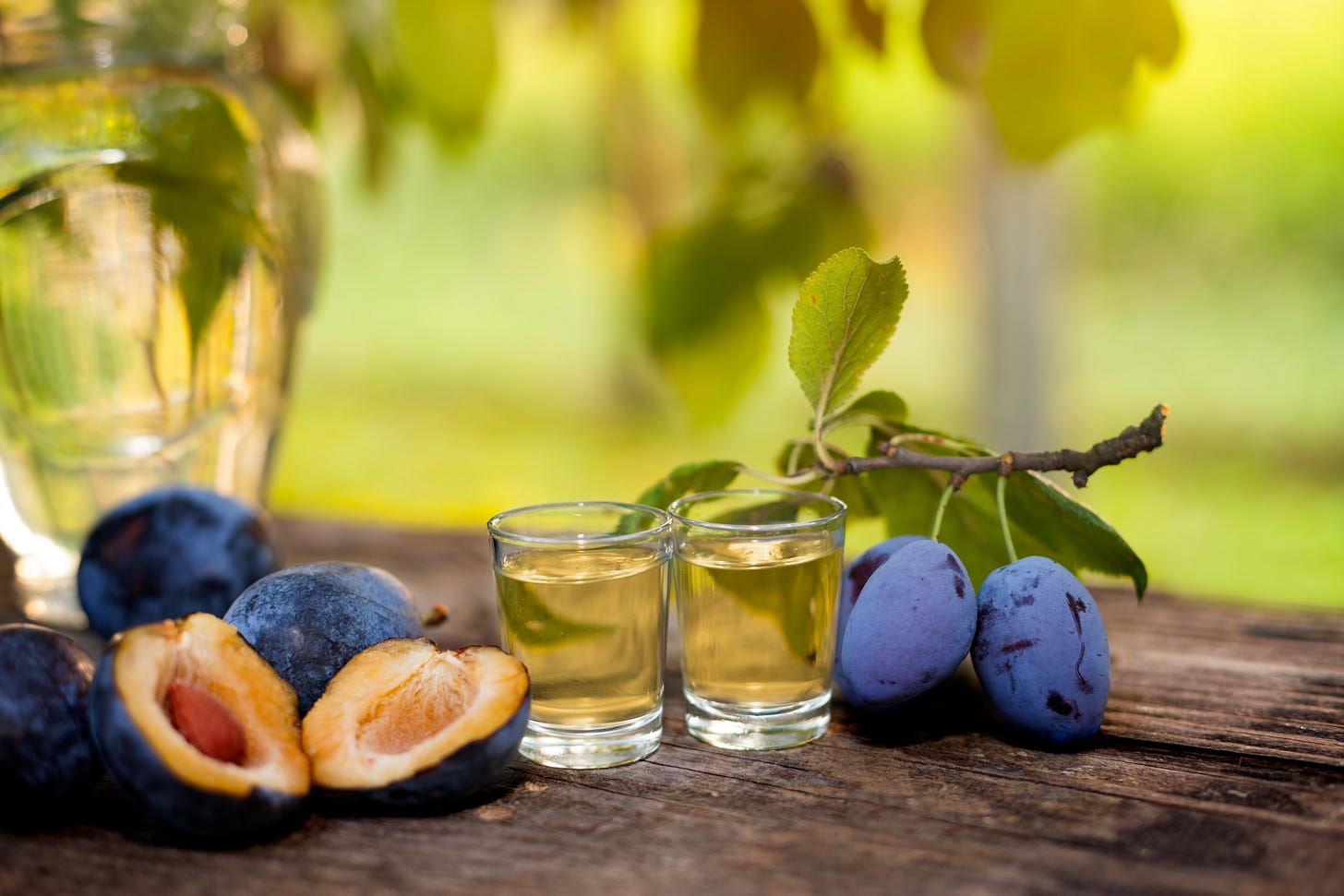If you’re enjoying Smart Mouth, please consider signing up for a paid subscription. The money goes toward paying our contributors. Substack sets the minimum at $5/month, so you can't give less than that,* but please feel absolutely free to give more.
*If you would like to give less than $5, you can do that via Patreon, and it is very helpful and appreciated! You will also get podcast episodes one week early!

This week on the podcast: Eric Adjepong on DC versus Baltimore, introducing African food to Top Chef, and the origins of jollof rice and why it’s so dang important. (Hibiscus is important, too!) And, how to get started cooking West African food yourself.
You can listen to Smart Mouth on iTunes, on Stitcher, on Spotify - or any other podcast player!

Eat Your Way Through Sofia
When most travelers think of Balkan food, they envision skewers of glistening pork. Indeed, Bulgarian menus are stuffed with pork, along with chicken, lamb, and seafood.
But a little digging reveals that the bedrock of Bulgarian food — millennia older than the country itself — is dairy. Think brined cheese and tongue-curling yogurt.
Until borders open and you can join the city’s free food tour, here’s what to know about what the capital, Sofia, dishes out.
Banitsa: This breakfast pastry is Bulgaria’s answer to the French croissant or American flapjack. But with fillings! Pick your poison: Cheese, vegetables, greens, minced meat, or a mixture of all four. Next, your form: pie-sized spiral or handheld crepe. Either way, the banitsa is made by layering thin phyllo dough with egg wash and butter or yogurt.

What makes a banitsa so delightful is its versatility. Fancy a handheld lentil rollup for breakfast? Grab a banitsa at Sofia’s beloved vegan bakery, Sun Moon. Prefer your mornings a little more meaty? Snag one stuffed with minced beef and onion at one of myriad cafes under the shadow of Mount Vitosha along Vitosha Boulevard.
Sirene: A close cousin to feta, this brined, crumbly white cheese pairs with everything from salad to a shot of rakia, the Balkans' fiery fruit brandy. At wood-and-stone tavern Hadjidraganov's Cellars, try it slathered on bread or sprinkled on aivar, a ruddy pepper-and-eggplant chutney.

Lactobacillus bulgaricus: Bulgarians claim their country is the birthplace of modern yogurt (move over, Greece). Science backs up their claim. About 4,000 years ago, nomadic Thracians traveled through the region with lambskin bags full of milk, which sloshed until it thickened into tangy liquid silk. In the early 1900s, Dr. Stamen Grigorov identified lactobacillus bulgaricus as the catalyst of milk's transformation.
In Sofia, there’s no need to look far for yogurt. Whether you're popping into the convenience store or tucking into a 5-course dinner at the Balkans’ only dine-in-the-dark restaurant, Tenebris, you'll find the beloved treat.
Shopska salad: Rumor has it this ubiquitous tower of tomatoes, cucumbers, peppers, and cheese isn’t a traditional Bulgarian dish at all. It was the brainchild of Bulgaria’s early 20th-century ministry of tourism. After a nationwide food competition, officials decided a salad in the colors of the Bulgarian flag best represented the country. Despite its forced origin story, shopska salad lives on in every restaurant in the nation. (A tip of the hat to that early socialist PR squad.) [Ed. note: The same is probably true of Thailand’s pad thai.]
No meal in Sofia is complete without shopska salad. Just don’t forget, again, the rakia. In Bulgaria, shopska and rakia go together like peanut butter and jelly. Order this sinus-clearing combo at the tongue-in-cheek Soviet-themed Raketa Rakia. 🇧🇬

More Food Reading:
Most shrimp at most stores are harvested by slaves. It’s something we have to be aware of when we shop. By Josephine Livingstone.
I’m actually surprised CPK couldn’t find a buyer, given how beloved it is. By Josh Saul and Leslie Patton.
The things service workers have to deal with right now. Awful. By Ashlie D. Stevens.
This story focuses on bakers (because a story has to have a focus), but there are all kinds of food purveyors on Instagram now. Writer Khushbu Shah outlines why some bakers actually prefer working for themselves from home (despite its incredible challenges), and I really hope that they’re allowed by local government to keep doing so indefinitely.
This newsletter is edited by Katherine Spiers, host of the podcast Smart Mouth.
A TableCakes Production.
Want to contribute? Here are the submission guidelines.



